Turgenev, "Biryuk": a summary
The story "Biryuk" by Ivan Sergeevich Turgenev was included in the famous cycle "Notes of a Hunter", which was published from 1847 to 1851 in the journal Sovremennik, and was published as a separate edition in 1852.
The stories (or essays, as some literary scholars call them) were written after the writer's vacation and hunting at his mother's estate, Spasskoe-Lutovinovo, which is located in the Mtsensk district of the Oryol region.
It is known that the story is based on real events that happened to the forester who served on the estate. True, in them the fate of this man was different: the embittered peasants killed him.
The narration, as in all the stories of the cycle, is conducted in the first person, and the narrator himself participates in the plot.
Start
Ahead, a huge purple cloud slowly rose from behind the forest; above me and toward me rushed long gray clouds; the willows stirred and babbled anxiously. The stuffy heat suddenly gave way to a damp chill; the shadows were rapidly thickening.
It started raining heavily. The hunter somehow took cover in the branches of a large bush and began to wait for the end of the bad weather. Suddenly, by the light of lightning, he saw a man who suddenly, as if from nowhere, appeared before him.
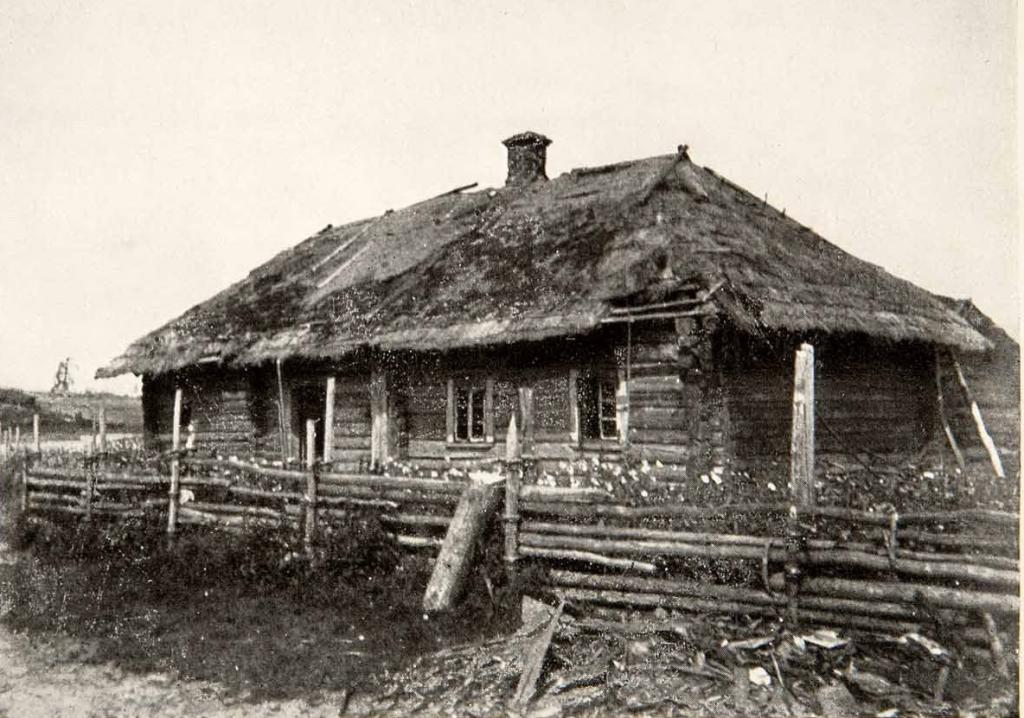
It was a local forester. He invited the "master" to his hut to wait out the storm. He took the mare by the bridle and led him to the house.
Development of events
The forester's hut, as it should be noted in the summary of Turgenev's story "Biryuk", stood in the middle of a wide courtyard surrounded by wattle fences. A twelve-year-old girl, the owner's daughter, opened the door to them at the knock. She was barefoot, in one belted shirt. While the forester put the horse under a shed, the girl, shining a lantern, led the author into the hut.
The whole hut inside was one room with a low ceiling without curtains and partitions. The walls were smoky, the decoration was the most miserable: a torn sheepskin coat hung on the wall, a gun lay on a bench, a pile of rags lay in the corner. A torch was burning on the table, a cradle with a baby sleeping in it hung from the ceiling. She sat down and began to rock the girl.
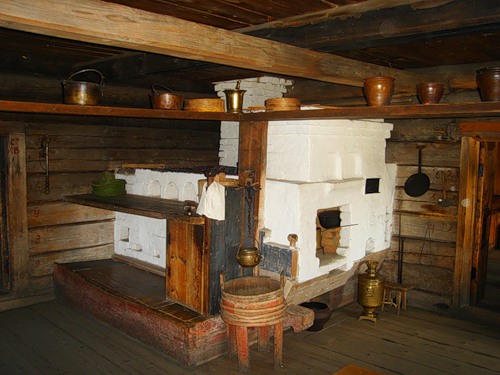
The forester entered the hut, and the author saw that he was a real hero - a tall and stately man. With the message that his name was Foma, nicknamed Biryuk, he greatly surprised the narrator - he even heard a lot about him from his servant Yermolai, about how harsh and quick he was to deal with poachers.
In the summary compiled according to Turgenev's story "Biryuk", we give the words of Yermolai about the forester:
Knitted brushwood will not be dragged away; at whatever time, even at midnight, it will come like snow on your head, and you don’t think to resist - strong, they say, and dexterous like a demon ... And you can’t take him with anything: neither wine, nor money; does not take any bait. More than once, good people were going to kill him from the world, but no - it’s not given ...
When asked about life, he said that he did not have a wife - she ran away "with a passer-by tradesman", leaving a small child.
The storm is over. Biryuk offered to accompany the guest to the exit from the forest. Coming out, he took a gun - they say, they are naughty in the forest, they cut the forest. But, no matter how hard he tried, the author could not hear the sound of the ax - only the leaves of the trees rustled in the wind.
He invited the hero of the story to accompany him in the capture of the "robber" - together they left the forest, passed the ravine.
Capturing a criminal
Further, in the summary of "Biryuk", we say that the forester grabbed the thief already at the tree he had fallen. He looked pitiful - he was wearing some rags wet from the rain. Nearby stood a horse covered with old matting.
It began to rain again, and the trinity had to return to the forester's hut. There the owner sat the thief with his hands tied with a sash in the corner, and the narrator felt sorry for him: he promised himself to free the poor man without fail.
The peasant, "in a deaf and broken voice," asked Foma Kuzmich (Biryuk) to let him go, explaining his act by extreme need and poverty. The forester did not agree, arguing that, they say, he knows their entire settlement, there, no matter who you take, they are all thieves.
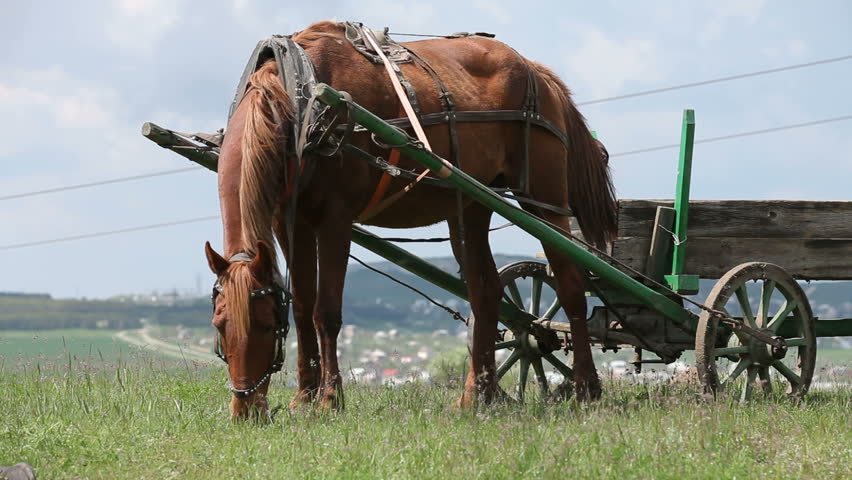
The peasant continued to beg, trembling as if in a fever, talking about the ruinous clerk and that, they say, "the children squeak," and all the theft is from hunger. He promised that he would pay, and asked to return at least the horse, but Biryuk refused.
Realizing that now certain death from starvation - after all, he was left without a horse, the last cattle in his household, and without a cut down tree, and even under the threat of future punishment, the captive rebelled:
The man suddenly straightened up. His eyes lit up and his face flushed. "Well, eat, choke, choke," he began, screwing up his eyes and lowering the corners of his lips, "here, damned murderer: drink Christian blood, drink..."
The forester ordered him to be silent.
End of story
The culmination of the story "Biryuk" (and in its summary) was the last phrase uttered by the captured peasant:
“I will not be silent,” continued the unfortunate man. - Everything is one - to round something. You are a murderer, beast, there is no death for you ... But wait, your reign will not be long! will tighten your throat, wait!
The forester was about to grab him by the shoulder, but the narrator, intending to intercede for the peasant, half rose...
And suddenly, to his amazement, Biryuk tore the tied sash from the hands of the thief, pulled his hat on him and, grabbing him by the collar, pushed him out of the door. With parting words: "Get the hell out with your horse and, look, don't get caught again!" - he returned to the hut and, to the sound of wheels of a peasant cart leaving the yard, began, as if nothing had happened, to dig in the corner.
And that's where the story ended. And half an hour later the forester accompanied the narrator to the edge of the forest and said goodbye to him.
The image of Biryuk
The main character is bright and colorful. Almost like an epic, not without the admiration of the author, the words about his appearance at the beginning of the story sound (the narrator's first visit to the hut):
He was tall, broad-shouldered and well built. His mighty muscles protruded from under his wet zamashka shirt. A black curly beard half covered his stern and courageous face; small brown eyes peered boldly from under wide brows that had grown together.
By the way, "zamashnaya shirt" means made of coarse homespun (spun) canvas. The mention of the simplicity of clothing works on the general characterization of the hero: he, apparently, is poor, his clothes are not rich, the furnishings of his home are wretched and "sad", from food there is only bread and water. And he is not looking for any advantages in his service. It is enough for the forester to realize that he does not receive a salary in vain, honestly fulfilling his duty.
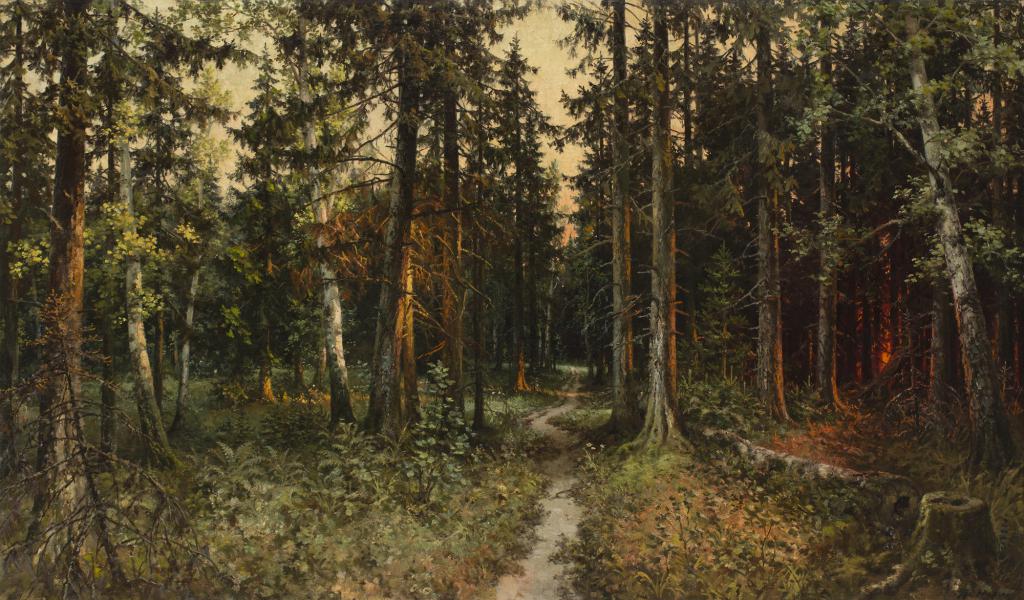
Hence the behavior of Biryuk. He behaves independently and does not fawn. For example, having met a “master” captured by a thunderstorm in the forest, he does not so much offer as decide that he should wait out the bad weather in his hut:
“Perhaps I’ll take you to my hut,” he said curtly.
And then he tells about his wife "with a cruel smile" that she died - that is, she ran away, leaving him, and her daughter, and the child (and it's not easy, you know, she lived with this man!).
He has his own principles. And here is one of them: "To steal no trace of anyone." And he also has an understanding of people, and he cannot help but see how difficult the fate of the peasant homeless, who see only one way out of hopelessness - to steal.
But the mighty forester is not inclined to sentimentality and, as follows from the story, he compromises his principles, releasing the thief, only this time - which means that he is stubborn, but his soul is not yet completely callous.
The image of a man
In the scene of the capture of the thief, he screams "plaintively, like a hare." And he looks like a poor man, pitifully: wet, dressed in rags, with a disheveled beard. And then, in the hut, the author examines him better: the one who went out to night fishing has an unpleasant, drunk and wrinkled face, a shifty look, hanging yellowed eyebrows, and he himself is thin and unprepossessing.
But all this becomes unimportant when the peasant falls into despair and shouts, reddening his face, at Biryuk: "Asiatic, bloodsucker, murderer, beast!" He screams so much that the forester, who has seen everything in his hectic work, is amazed. Now the thief, who understands that the last hope for good luck has left him, becomes ferocious and strong himself - is there any point in fearing punishment and beatings, when starvation may await him and his family?
So in Turgenev's story two such different representatives of the same people are described.
We have given a summary of the story "Biryuk" from the collection "Notes of a Hunter" by I. S. Turgenev.
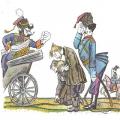 “Lefty” - a summary of the work N
“Lefty” - a summary of the work N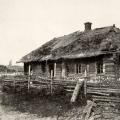 Turgenev, "Biryuk": a summary
Turgenev, "Biryuk": a summary Comedy A.N. Ostrovsky "Poverty is not a vice": a summary of the work
Comedy A.N. Ostrovsky "Poverty is not a vice": a summary of the work